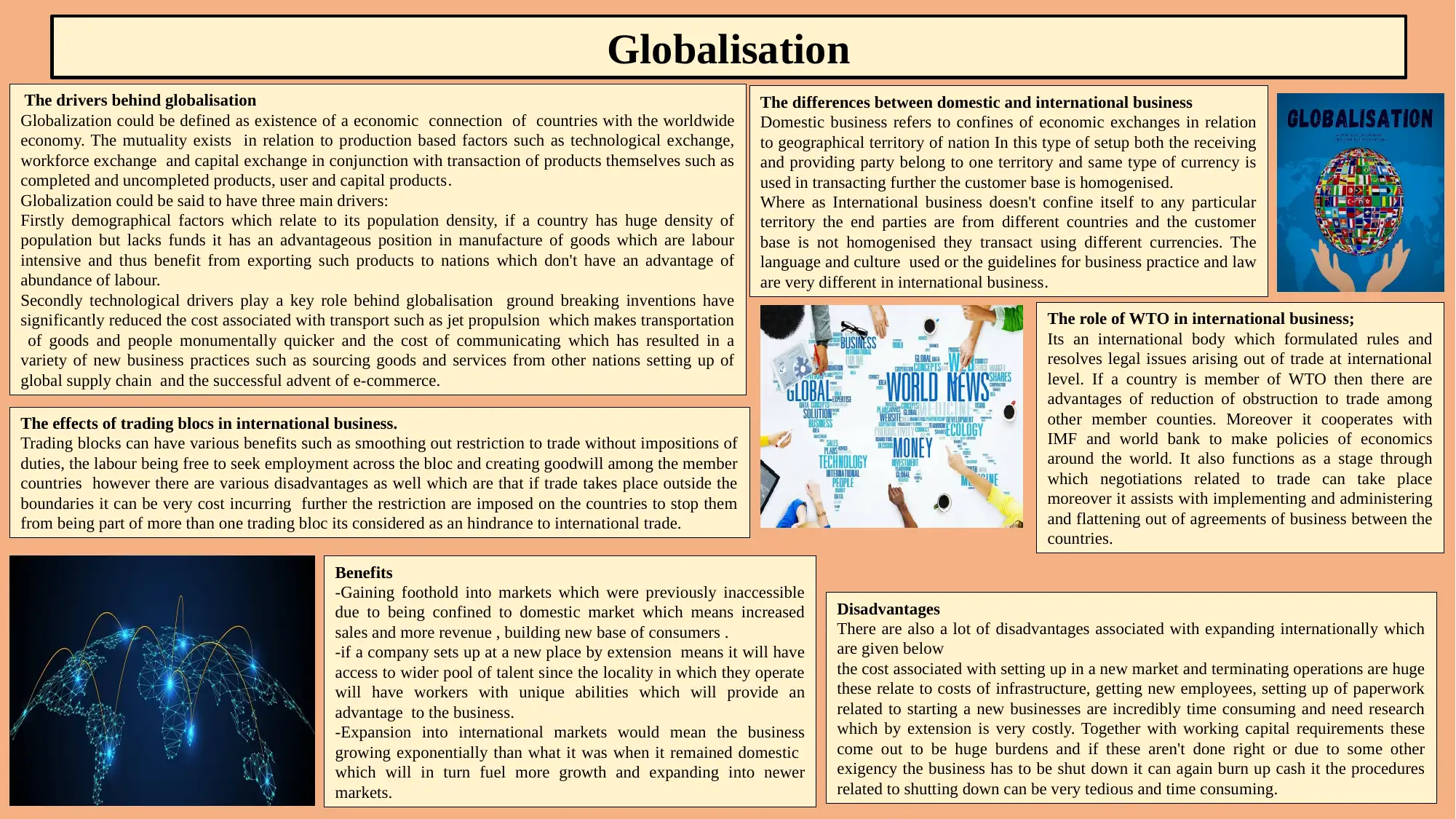Globalisation Report: International Business and Trade Dynamics
VerifiedAdded on 2023/06/10
|1
|717
|97
Report
AI Summary
This report examines the multifaceted aspects of globalization and its impact on international business. It begins by defining globalization and outlining its key drivers, including demographical and technological factors. The report then differentiates between domestic and international business, highlighting the differences in customer base, currency, and legal frameworks. It delves into the effects of trading blocs, discussing their benefits and drawbacks, such as market access and trade restrictions. Furthermore, the role of the World Trade Organization (WTO) in international business is analyzed, emphasizing its role in formulating trade rules and resolving legal issues. The report also acknowledges the disadvantages associated with international expansion, such as high setup costs and the complexities of establishing and terminating operations in new markets. The report provides a comprehensive overview of globalization, international trade, and the challenges and opportunities that arise from them.




![[object Object]](/_next/static/media/star-bottom.7253800d.svg)